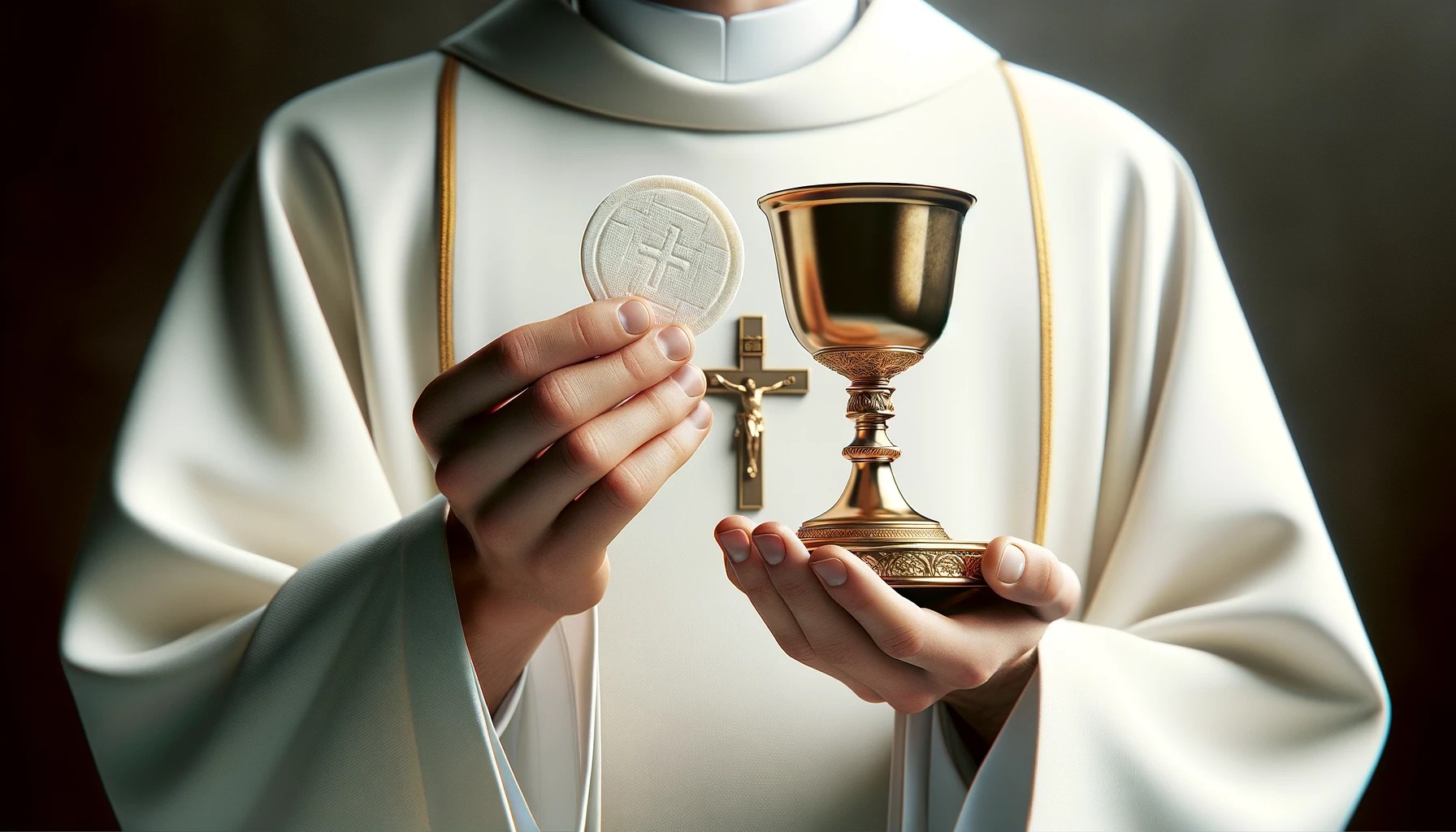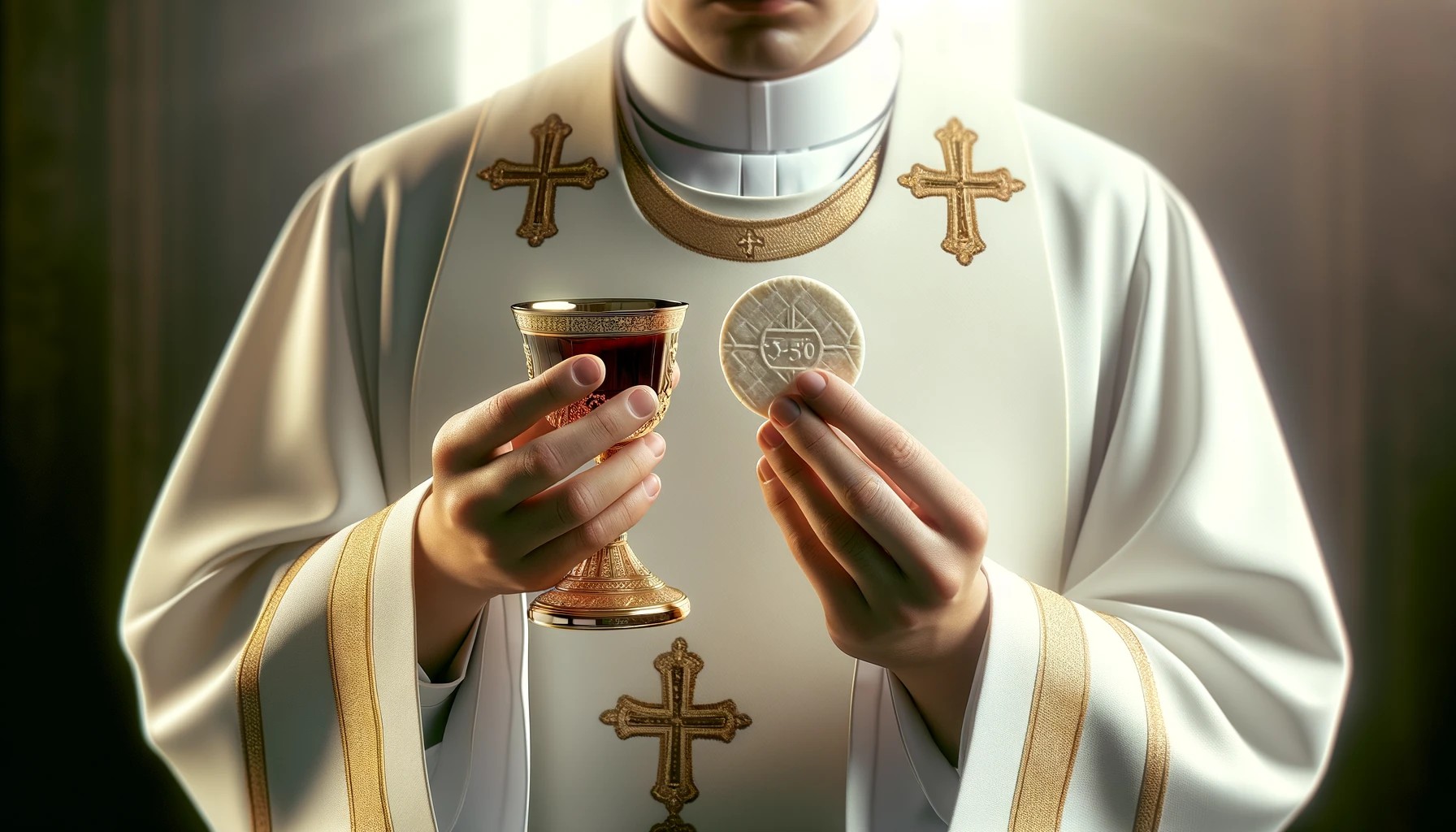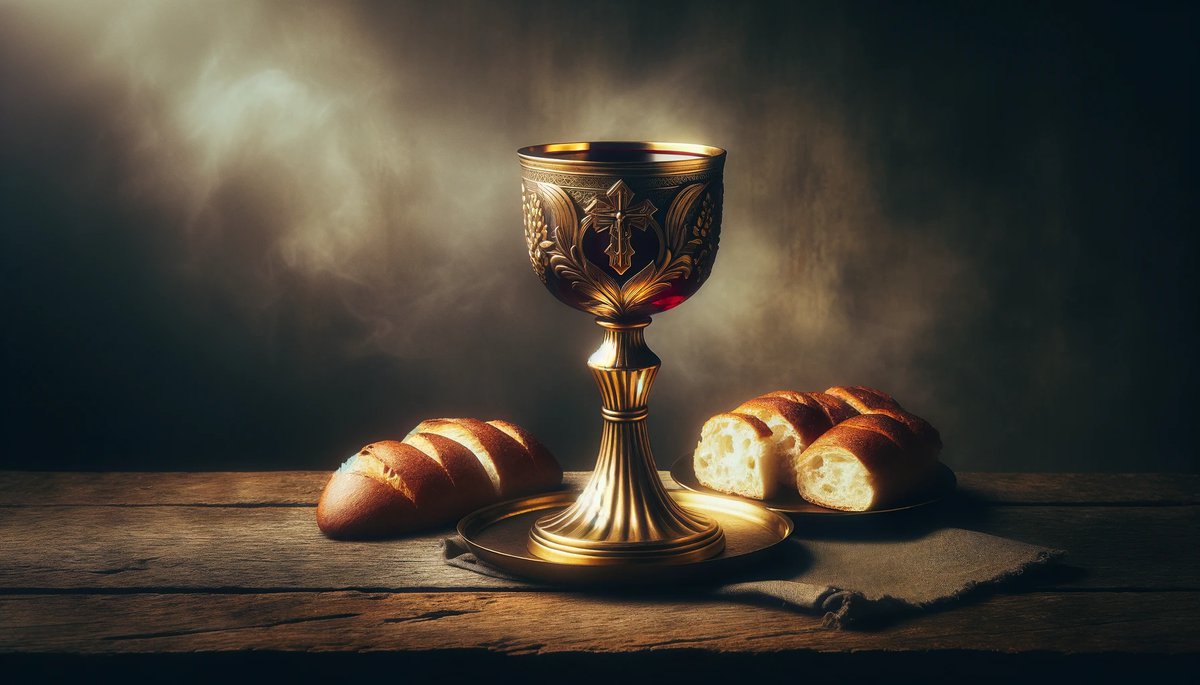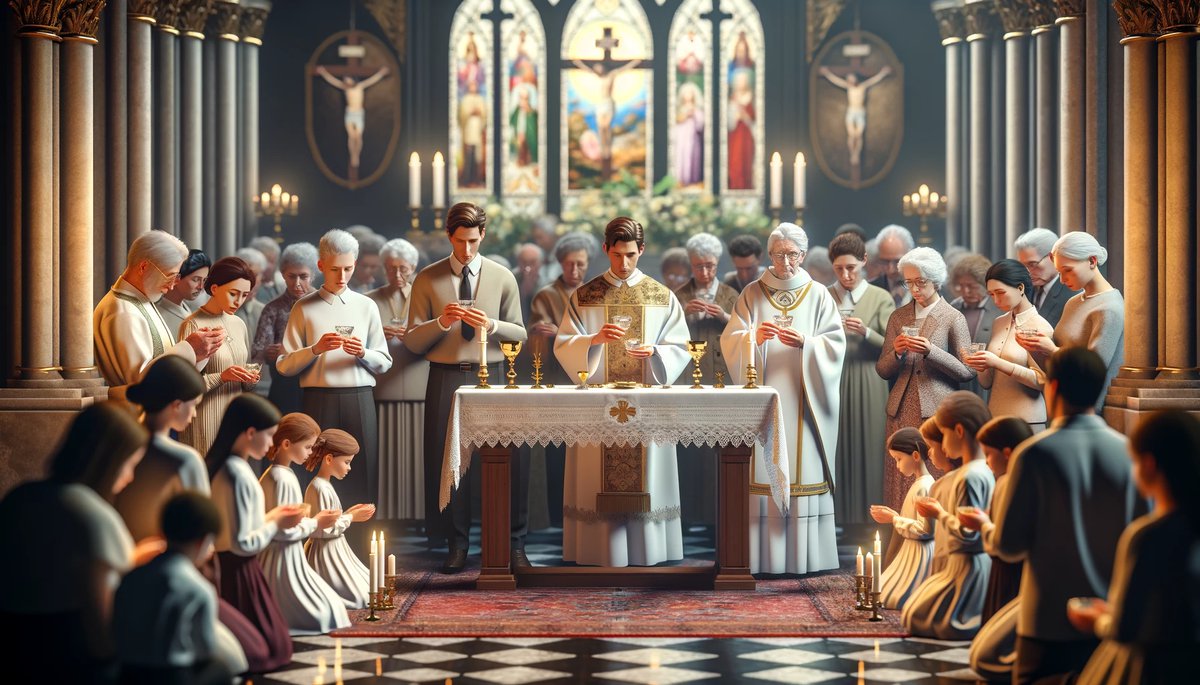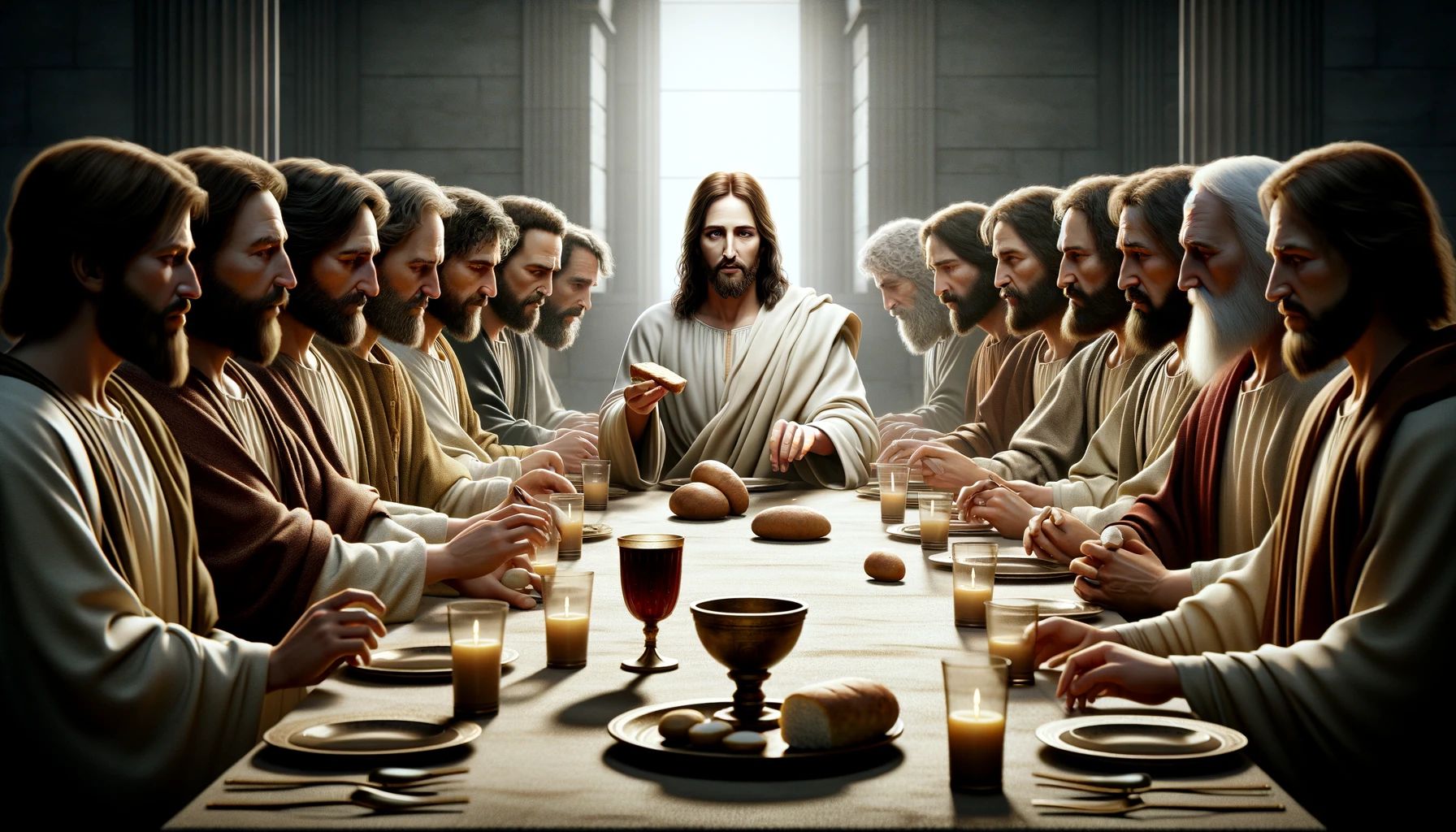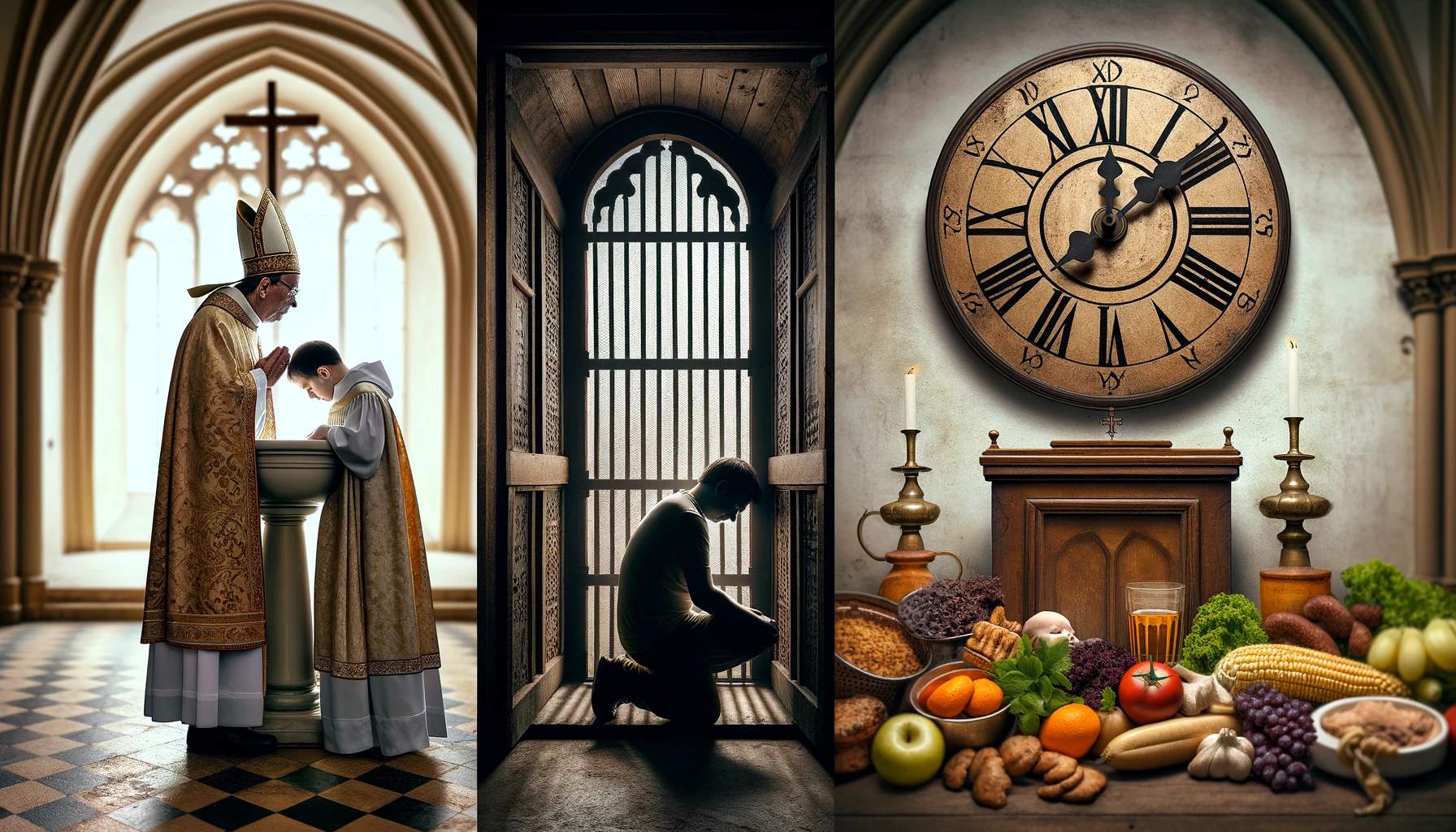Home>Theology and Spirituality>What Is The Symbol Of Holy Communion
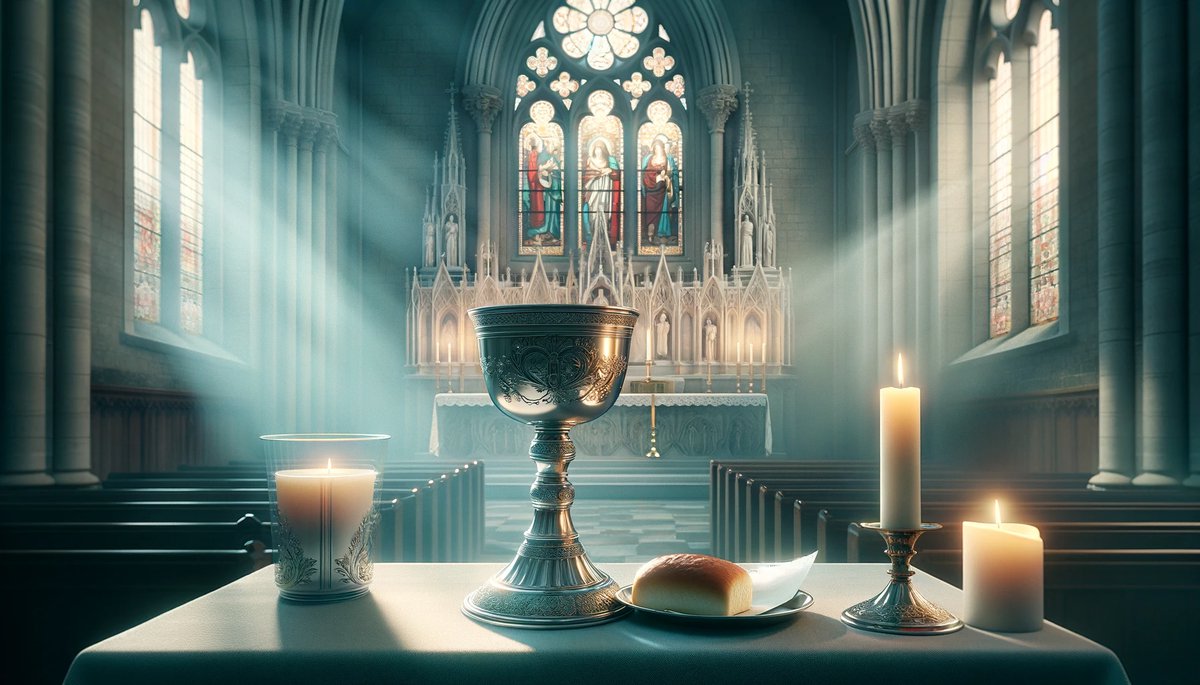

Theology and Spirituality
What Is The Symbol Of Holy Communion
Published: February 19, 2024
Peter Smith, Editorial Director at Christian.net, combines deep insights into faith, politics, and culture to lead content creation that resonates widely. Awarded for his contributions to religious discourse, he previously headed a major organization for religious communicators, enhancing dialogue on faith's societal impacts.
Discover the significance of the symbol of Holy Communion in theology and spirituality. Explore its meaning and importance in Christian faith.
(Many of the links in this article redirect to a specific reviewed product. Your purchase of these products through affiliate links helps to generate commission for Christian.net, at no extra cost. Learn more)
Table of Contents
Introduction
Holy Communion, also known as the Eucharist, is a central sacrament in Christianity, symbolizing the spiritual nourishment and unity of believers with Christ. This sacred ritual holds profound significance across various Christian denominations, serving as a tangible expression of faith and a means of experiencing the presence of the divine.
The act of Holy Communion traces its origins to the Last Supper, a pivotal event in the life of Jesus Christ. During this final meal with his disciples, Jesus instituted the practice of sharing bread and wine as symbols of his body and blood, establishing a powerful and enduring tradition that continues to resonate deeply within Christian communities worldwide.
As we delve into the symbolism and spiritual essence of Holy Communion, we will uncover the rich tapestry of meaning woven into the elements of bread and wine. These elements serve as potent metaphors, embodying the essence of Christ's sacrifice and the spiritual sustenance offered to believers through partaking in this sacred ritual.
Throughout this exploration, we will gain a deeper understanding of the profound significance of Holy Communion and its enduring relevance in the lives of Christians. This timeless tradition continues to unite believers in a shared experience of spiritual nourishment and communion with the divine, transcending time and space to connect individuals with the profound legacy of faith and sacrifice embodied by Jesus Christ.
Read more: What Does Holy Communion Symbolize
The Origins of Holy Communion
The origins of Holy Communion can be traced back to the Last Supper, a momentous event in the life of Jesus Christ. It was during this poignant gathering that Jesus shared a final meal with his disciples before his crucifixion. As they reclined at the table, Jesus took bread, blessed it, and broke it, giving it to his disciples, saying, "Take, eat; this is my body." He then took a cup of wine, gave thanks, and offered it to them, declaring, "Drink from it, all of you; for this is my blood of the covenant, which is poured out for many for the forgiveness of sins" (Matthew 26:26-28).
This profound act of sharing bread and wine as symbols of Christ's body and blood established the foundation of Holy Communion. It was a transformative moment that imbued these simple elements with profound spiritual significance, setting in motion a sacred tradition that would endure throughout the ages.
The Last Supper serves as the cornerstone of Holy Communion, embodying the essence of Christ's sacrificial love and the promise of redemption. Through the act of partaking in the bread and wine, believers are invited to enter into a profound communion with the divine, experiencing the enduring presence of Christ in their midst.
The significance of the Last Supper and the establishment of Holy Communion reverberate through the annals of Christian history, shaping the spiritual practices and beliefs of countless individuals and communities. This sacred ritual stands as a testament to the enduring legacy of Jesus Christ, offering believers a tangible means of connecting with the profound depths of his love and sacrifice.
As we reflect on the origins of Holy Communion, we are reminded of the timeless power encapsulated within this sacred sacrament. It serves as a poignant reminder of Christ's enduring presence and his invitation to partake in the spiritual nourishment and unity offered through the sharing of bread and wine. This foundational event continues to resonate deeply within the hearts and minds of believers, serving as a testament to the unyielding bond between Christ and his followers.
The Symbolism of Bread
Bread holds profound symbolism within the context of Holy Communion, representing essential facets of the Christian faith and the spiritual nourishment offered through the body of Christ. When Jesus took the bread, blessed it, and broke it during the Last Supper, he imbued this simple sustenance with profound significance, transforming it into a potent symbol of his sacrificial love and the sustenance offered to believers.
The act of breaking the bread mirrors the breaking of Christ's body on the cross, symbolizing his selfless sacrifice for the redemption of humanity. As believers partake in the bread during Holy Communion, they are invited to enter into a profound communion with the essence of Christ's sacrifice, experiencing the transformative power of his love and grace.
Furthermore, bread serves as a universal symbol of sustenance and nourishment, reflecting the spiritual sustenance offered through the body of Christ. Just as physical bread nourishes the body, the symbolic bread of Holy Communion nourishes the soul, offering believers a source of spiritual sustenance and renewal.
The communal aspect of sharing bread during Holy Communion also underscores the theme of unity and fellowship within the body of Christ. As believers partake in the shared loaf, they are reminded of their interconnectedness and shared identity as members of the Christian community, bound together by their faith in Christ.
The symbolism of bread within Holy Communion encapsulates the profound themes of sacrifice, sustenance, and unity, serving as a tangible reminder of Christ's enduring presence and the spiritual nourishment offered to believers through his body. This sacred symbol continues to resonate deeply within the hearts of Christians, serving as a potent expression of their faith and a means of experiencing the transformative power of Christ's love and grace.
In essence, the symbolism of bread within Holy Communion transcends its physical form, embodying the spiritual essence of Christ's sacrifice and the enduring nourishment offered to believers through their communion with the divine. It stands as a timeless testament to the unyielding love and grace of Jesus Christ, inviting believers to partake in the profound depths of his sacrificial legacy.
The Symbolism of Wine
Wine holds profound symbolism within the context of Holy Communion, representing essential facets of the Christian faith and the spiritual nourishment offered through the blood of Christ. During the Last Supper, Jesus took a cup of wine, blessed it, and offered it to his disciples, declaring it to be his blood of the covenant, poured out for the forgiveness of sins. This act imbued the wine with profound significance, transforming it into a potent symbol of Christ's sacrificial love and the redemption offered to believers.
The rich symbolism of wine within Holy Communion encompasses multiple layers of meaning. Firstly, wine symbolizes the blood of Christ, signifying the atoning sacrifice and the forgiveness of sins. Through partaking in the wine during Holy Communion, believers are invited to enter into a profound communion with the redemptive power of Christ's blood, experiencing the transformative grace and forgiveness extended to humanity through his sacrifice on the cross.
Furthermore, wine serves as a symbol of joy and celebration within the Christian tradition. It embodies the concept of spiritual abundance and the overflowing grace bestowed upon believers through their union with Christ. The act of sharing the cup of wine during Holy Communion underscores the theme of communal celebration and gratitude, as believers come together to partake in the spiritual richness and joy offered through the blood of Christ.
The communal aspect of sharing the cup of wine also emphasizes the theme of unity and fellowship within the body of Christ. As believers partake in the shared cup, they are reminded of their interconnectedness and shared identity as members of the Christian community, bound together by their faith in Christ and their participation in the redemptive covenant symbolized by the wine.
In essence, the symbolism of wine within Holy Communion encapsulates the profound themes of redemption, joy, and unity, serving as a tangible reminder of Christ's enduring presence and the spiritual abundance offered to believers through his blood. This sacred symbol continues to resonate deeply within the hearts of Christians, serving as a potent expression of their faith and a means of experiencing the transformative power of Christ's redemptive love and grace.
The symbolism of wine within Holy Communion transcends its physical form, embodying the spiritual essence of Christ's sacrifice and the enduring spiritual richness offered to believers through their communion with the divine. It stands as a timeless testament to the unyielding love and grace of Jesus Christ, inviting believers to partake in the profound depths of his redemptive legacy.
The Act of Communion
The act of Holy Communion, often referred to as the Eucharist, encompasses a sacred and deeply symbolic ritual within the Christian tradition. As believers gather to partake in this profound sacrament, they engage in a spiritual practice that transcends the boundaries of time and space, connecting them with the enduring legacy of Christ's sacrifice and love.
At the heart of the act of Communion lies a profound sense of participation in the divine mystery. As believers approach the communion table, they are invited to partake in the shared elements of bread and wine, symbolizing the body and blood of Christ. This act of partaking in the sacred elements serves as a tangible expression of faith, as believers commune with the essence of Christ's sacrificial love and redemptive grace.
The act of Communion also embodies the theme of unity and fellowship within the body of Christ. As believers come together to partake in the shared elements, they are reminded of their interconnectedness and shared identity as members of the Christian community. This communal gathering underscores the profound sense of belonging and shared faith that unites believers across diverse backgrounds and experiences.
Furthermore, the act of Communion serves as a powerful means of spiritual nourishment and renewal. As believers partake in the bread and wine, they are invited to experience the transformative power of Christ's presence in their lives. The act of Communion becomes a sacred moment of encountering the living Christ, as believers open their hearts to receive the spiritual sustenance and grace offered through the shared elements.
In essence, the act of Communion transcends the realm of mere ritual, embodying a profound spiritual encounter with the divine. It serves as a timeless expression of faith, unity, and spiritual nourishment, inviting believers to partake in the enduring legacy of Christ's love and sacrifice. Through the act of Communion, believers are drawn into a sacred communion with the essence of Christ's presence, experiencing the transformative power of his redemptive grace in their lives.
Read more: What Is Holy Communion?
The Importance of Holy Communion in Christianity
Holy Communion holds profound significance within the Christian faith, serving as a cornerstone of spiritual practice and a tangible expression of believers' communion with the divine. This sacred sacrament embodies the essence of Christ's sacrificial love and the redemptive grace extended to humanity, offering believers a transformative encounter with the living Christ.
At the heart of its importance lies the concept of spiritual nourishment and unity. Through partaking in the shared elements of bread and wine, believers are invited to enter into a profound communion with the essence of Christ's sacrifice, experiencing the transformative power of his love and grace. This act of communion serves as a potent reminder of Christ's enduring presence and his invitation to partake in the spiritual sustenance offered through the sacred elements.
Furthermore, Holy Communion fosters a sense of unity and fellowship within the body of Christ. As believers gather to partake in this sacred ritual, they are reminded of their interconnectedness and shared identity as members of the Christian community. This communal gathering underscores the profound sense of belonging and shared faith that unites believers across diverse backgrounds and experiences, fostering a deep sense of spiritual kinship and mutual support.
The act of Communion also serves as a powerful means of spiritual renewal and transformation. As believers open their hearts to receive the shared elements, they are invited to encounter the living Christ in a deeply personal and profound manner. This sacred encounter becomes a source of spiritual nourishment and grace, offering believers a tangible experience of Christ's redemptive presence in their lives.
Moreover, Holy Communion serves as a tangible expression of faith and devotion. Through the act of partaking in the sacred elements, believers affirm their commitment to Christ and their participation in the redemptive covenant symbolized by the bread and wine. This act of faith becomes a deeply personal and communal expression of devotion, strengthening believers' spiritual journey and fostering a deep sense of connection with the divine.
In essence, the importance of Holy Communion in Christianity transcends the realm of mere ritual, embodying a profound spiritual encounter with the living Christ. It stands as a timeless testament to the enduring legacy of Christ's love and sacrifice, inviting believers to partake in the transformative power of his redemptive grace. Through Holy Communion, believers are drawn into a sacred communion with the essence of Christ's presence, experiencing the profound significance of this sacred sacrament in their spiritual lives.
Conclusion
In conclusion, Holy Communion stands as a timeless testament to the enduring legacy of Christ's love and sacrifice, inviting believers to partake in the transformative power of his redemptive grace. This sacred sacrament, rooted in the Last Supper and the profound teachings of Jesus Christ, holds profound significance within the Christian faith, serving as a cornerstone of spiritual practice and a tangible expression of believers' communion with the divine.
The act of Communion transcends the realm of mere ritual, embodying a profound spiritual encounter with the living Christ. It becomes a sacred moment of encountering the living Christ, as believers open their hearts to receive the spiritual sustenance and grace offered through the shared elements of bread and wine. Through partaking in the sacred elements, believers are drawn into a sacred communion with the essence of Christ's presence, experiencing the transformative power of his redemptive grace in their lives.
Furthermore, Holy Communion fosters a sense of unity and fellowship within the body of Christ. As believers gather to partake in this sacred ritual, they are reminded of their interconnectedness and shared identity as members of the Christian community. This communal gathering underscores the profound sense of belonging and shared faith that unites believers across diverse backgrounds and experiences, fostering a deep sense of spiritual kinship and mutual support.
The act of Communion also serves as a powerful means of spiritual renewal and transformation. As believers partake in the bread and wine, they are invited to experience the transformative power of Christ's presence in their lives. This act of communion becomes a source of spiritual nourishment and grace, offering believers a tangible experience of Christ's redemptive presence in their lives.
In essence, Holy Communion holds profound significance within the Christian faith, embodying the essence of Christ's sacrificial love and the redemptive grace extended to humanity. Through this sacred sacrament, believers are invited to enter into a profound communion with the essence of Christ's sacrifice, experiencing the transformative power of his love and grace. It stands as a timeless testament to the enduring legacy of Christ's love and sacrifice, inviting believers to partake in the profound depths of his sacrificial legacy.
